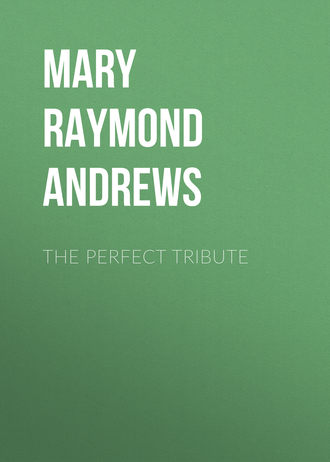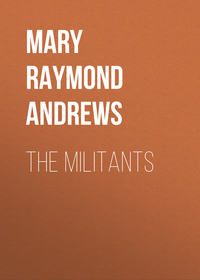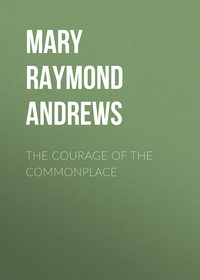 полная версия
полная версияThe Perfect Tribute
"Don't go yet," he pleaded, with the imperious, winning accent which was characteristic of both brothers. The sudden, radiant smile broke again over the face, young, drawn with suffering, prophetic of close death. "I like you," he brought out frankly. "I've never liked a stranger as much in such short order before."
His head, fair as the boy's, lay back on the pillows, locks of hair damp against the whiteness, the blue eyes shone like jewels from the colorless face, a weak arm stretched protectingly about the young brother who pressed against him. There was so much courage, so much helplessness, so much pathos in the picture that the President's great heart throbbed with a desire to comfort them.
"I want to talk to you about that man Lincoln, your namesake," the prisoner's deep, uncertain voice went on, trying pathetically to make conversation which might interest, might hold his guest. The man who stood hesitating controlled a startled movement. "I'm Southern to the core of me, and I believe with my soul in the cause I've fought for, the cause I'm—" he stopped, and his hand caressed the boy's shoulder. "But that President of yours is a remarkable man. He's regarded as a red devil by most of us down home, you know," and he laughed, "but I've admired him all along. He's inspired by principle, not by animosity, in this fight; he's real and he's powerful and"—he lifted his head impetuously and his eyes flashed—"and, by Jove, have you read his speech of yesterday in the papers?"
Lincoln gave him an odd look. "No," he said, "I haven't."
"Sit down," Blair commanded. "Don't grudge a few minutes to a man in hard luck. I want to tell you about that speech. You're not so busy but that you ought to know."
"Well, yes," said Lincoln, "perhaps I ought." He took out his watch and made a quick mental calculation. "It's only a question of going without my dinner, and the boy is dying," he thought. "If I can give him a little pleasure the dinner is a small matter." He spoke again. "It's the soldiers who are the busy men, not the lawyers, nowadays," he said. "I'll be delighted to spend a half hour with you, Captain Blair, if I won't tire you."
"That's good of you," the young officer said, and a king on his throne could not have been gracious in a more lordly yet unconscious way. "By the way, this great man isn't any relation of yours, is he, Mr. Lincoln?"
"He's a kind of connection—through my grandfather," Lincoln acknowledged. "But I know just the sort of fellow he is—you can say what you want."
"What I want to say first is this: that he yesterday made one of the great speeches of history."
"What?" demanded Lincoln, staring.
"I know what I'm talking about." The young fellow brought his thin fist down on the bedclothes. "My father was a speaker—all my uncles and my grandfather were speakers. I've been brought up on oratory. I've studied and read the best models since I was a lad in knee-breeches. And I know a great speech when I see it. And when Nellie—my sister—brought in the paper this morning and read that to me I told her at once that not six times since history began has a speech been made which was its equal. That was before she told me what the Senator said."
"What did the Senator say?" asked the quiet man who listened.
"It was Senator Warrington, to whom my sister is—is acting as secretary." The explanation was distasteful, but he went on, carried past the jog by the interest of his story. "He was at Gettysburg yesterday, with the President's party. He told my sister that the speech so went home to the hearts of all those thousands of people that when it was ended it was as if the whole audience held its breath—there was not a hand lifted to applaud. One might as well applaud the Lord's Prayer—it would have been sacrilege. And they all felt it—down to the lowest. There was a long minute of reverent silence, no sound from all that great throng—it seems to me, an enemy, that it was the most perfect tribute that has ever been paid by any people to any orator."
The boy, lifting his hand from his brother's shoulder to mark the effect of his brother's words, saw with surprise that in the strange lawyer's eyes were tears. But the wounded man did not notice.
"It will live, that speech. Fifty years from now American schoolboys will be learning it as part of their education. It is not merely my opinion," he went on. "Warrington says the whole country is ringing with it. And you haven't read it? And your name's Lincoln? Warry, boy, where's the paper Nellie left? I'll read the speech to Mr. Lincoln myself."
The boy had sprung to his feet and across the room, and had lifted a folded newspaper from the table. "Let me read it, Carter—it might tire you."
The giant figure which had crouched, elbows on knees, in the shadows by the narrow hospital cot, heaved itself slowly upward till it loomed at its full height in air. Lincoln turned his face toward the boy standing under the flickering gas-jet and reading with soft, sliding inflections the words which had for twenty-four hours been gall and wormwood to his memory. And as the sentences slipped from the lad's mouth, behold, a miracle happened, for the man who had written them knew that they were great. He knew then, as many a lesser one has known, that out of a little loving-kindness had come great joy; that he had wrested with gentleness a blessing from his enemy.
"'Fourscore and seven years ago,'" the fresh voice began, and the face of the dying man stood out white in the white pillows, sharp with eagerness, and the face of the President shone as he listened as if to new words. The field of yesterday, the speech, the deep silence which followed it, all were illuminated, as his mind went back, with new meaning. With the realization that the stillness had meant, not indifference, but perhaps, as this generous enemy had said, "The most perfect tribute ever paid by any people to any orator," there came to him a rush of glad strength to bear the burdens of the nation. The boy's tones ended clearly, deliberately:
"'We here highly resolve that these dead shall not have died in vain, that this nation, under God, shall have a new birth of freedom, and that government of the people, by the people, for the people shall not perish from the earth.'"
There was deep stillness in the hospital ward as there had been stillness on the field of Gettysburg. The soldier's voice broke it. "It's a wonderful speech," he said. "There's nothing finer. Other men have spoken stirring words, for the North and for the South, but never before, I think, with the love of both breathing through them. It is only the greatest who can be a partisan without bitterness, and only such to-day may call himself not Northern or Southern, but American. To feel that your enemy can fight you to death without malice, with charity—it lifts country, it lifts humanity to something worth dying for. They are beautiful, broad words and the sting of war would be drawn if the soul of Lincoln could be breathed into the armies. Do you agree with me?" he demanded abruptly, and Lincoln answered slowly, from a happy heart.
"I believe it is a good speech," he said.
The impetuous Southerner went on: "Of course, it's all wrong from my point of view," and the gentleness of his look made the words charming. "The thought which underlies it is warped, inverted, as I look at it, yet that doesn't alter my admiration of the man and of his words. I'd like to put my hand in his before I die," he said, and the sudden, brilliant, sweet smile lit the transparency of his face like a lamp; "and I'd like to tell him that I know that what we're all fighting for, the best of us, is the right of our country as it is given us to see it." He was laboring a bit with the words now as if he were tired, but he hushed the boy imperiously. "When a man gets so close to death's door that he feels the wind through it from a larger atmosphere, then the small things are blown away. The bitterness of the fight has faded for me. I only feel the love of country, the satisfaction of giving my life for it. The speech—that speech—has made it look higher and simpler—your side as well as ours. I would like to put my hand in Abraham Lincoln's—"
The clear, deep voice, with its hesitations, its catch of weakness, stopped short. Convulsively the hand shot out and caught at the great fingers that hung near him, pulling the President, with the strength of agony, to his knees by the cot. The prisoner was writhing in an attack of mortal pain, while he held, unknowing that he held it, the hand of his new friend in a torturing grip. The door of death had opened wide and a stormy wind was carrying the bright, conquered spirit into that larger atmosphere of which he had spoken. Suddenly the struggle ceased, the unconscious head rested in the boy's arms, and the hand of the Southern soldier lay quiet, where he had wished to place it, in the hand of Abraham Lincoln.





